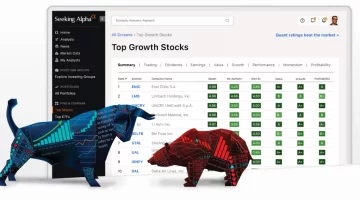Strategies for Sustainable Growth: Navigating the Dynamic Landscape of Modern Business
Introduction
In the ever-evolving landscape of modern business, achieving sustainable growth has become more challenging yet crucial than ever before. This article will delve into effective strategies for navigating the dynamic business environment while ensuring long-term success.
Understanding the Dynamic Business Landscape
In this fast-paced era, where technological progress is advancing at an unprecedented rate, businesses find themselves navigating a landscape of constant change. The rapid evolution of consumer preferences adds an additional layer of complexity, making it imperative for businesses to not only keep pace but to proactively anticipate and meet the evolving demands of their target audience. The interconnected nature of today's global economy introduces another facet of challenges. Businesses are not just contending with local market dynamics; they must also contend with the ripple effects of economic shifts on a global scale. This necessitates a profound understanding of the intricate web of international economic forces and their potential impact on the business environment.
Key Challenges in Achieving Sustainable Growth
Navigating the intricate dance between short-term gains and long-term objectives is a perpetual challenge for businesses aiming at sustained growth. The constant tension between immediate profitability and laying the foundation for enduring success requires a delicate balancing act. While achieving short-term gains is crucial for meeting immediate financial obligations and maintaining liquidity, the risk lies in potentially sacrificing long-term strategic goals for fleeting successes. It's akin to walking a tightrope, where one misstep could lead to a compromise in the overall vision and sustainability of the business.
Building a Foundation for Sustainable Growth
Establishing a strong foothold for sustainable growth requires businesses to go beyond traditional approaches and embrace a holistic strategy that encompasses innovation, adaptability, and the continuous development of their most valuable asset—employees. Innovation serves as the catalyst for progress, propelling businesses beyond the confines of the status quo. It involves not only technological advancements but also novel approaches to solving challenges, creating unique value propositions, and staying ahead of the curve in an ever-evolving market.
Harnessing Technology for Business Expansion
In the rapidly evolving digital age, businesses face both unprecedented challenges and exciting opportunities. Leveraging data analytics, embracing e-commerce, and implementing automation solutions have emerged as crucial strategies for those aiming not just to survive but to thrive in this dynamic landscape. Additionally, integrating innovative technologies such as QR codes into e-commerce strategies can enhance customer engagement and streamline transactions, contributing to a seamless and efficient digital experience.
Customer-Centric Approaches
Prioritizing customer experience, building brand loyalty, and actively seeking customer feedback are not just good practices; they are fundamental pillars that underpin the sustainability of businesses in a fiercely competitive market. In an era where consumers have abundant choices and information at their fingertips, the way a business treats its customers can make all the difference.
Collaborative Partnerships
In the ever-evolving landscape of modern business, the adage "strength in numbers" has taken on new significance. Forming strategic alliances, networking within the industry, and exploring joint ventures have emerged as powerful strategies that extend beyond the confines of individual enterprise boundaries. These initiatives not only represent the evolution of traditional business practices but also play a pivotal role in fostering collaborative growth and cultivating a supportive business ecosystem.
Sustainable Marketing Practices
In the contemporary business landscape, the essence of marketing has evolved beyond mere transactions; it's about building relationships and leaving a positive impact. Content marketing for long-term visibility, social responsibility campaigns, and the cultivation of an eco-friendly brand image are more than marketing strategies – they represent a commitment to sustainability, ethical practices, and long-term brand resonance.
Financial Strategies for Long-Term Success
In the intricate realm of business, the mastery of financial strategies is a linchpin for long-term success. Effective cash flow management, diversifying revenue streams, and responsible debt management stand as indispensable pillars, each playing a unique role in securing the financial health and sustainability of a business.
Monitoring and Adjusting Strategies
In the dynamic landscape of modern business, the ability to adapt and evolve is not just a virtue; it's a necessity. Regular performance assessment, flexibility in business plans, and learning from setbacks emerge as essential components in ensuring that strategies not only stay effective but also remain adaptable to the ever-changing circumstances businesses face.
Case Studies of Successful Sustainable Growth
Delving into real-world examples is akin to unlocking a treasure trove of practical wisdom for businesses seeking sustainable growth. By scrutinizing the experiences of successful enterprises, valuable insights and lessons emerge, serving as beacons of inspiration and guidance for a diverse array of business models. This practice not only allows businesses to learn from the triumphs and tribulations of others but also provides a roadmap for navigating the complexities of the ever-evolving business landscape.
Future-proofing the Business
In the ever-evolving landscape of business, where change is constant and uncertainties are inevitable, future-proofing a business becomes a strategic imperative. Anticipating future trends, investing in research and development (R&D), and fostering a culture of continuous improvement emerge as critical steps to not only survive in the face of uncertainties but to thrive and stay ahead of the curve.
Conclusion
In conclusion, sustainable growth is not a one-size-fits-all approach but a combination of well-thought-out strategies, adaptability, and a commitment to long-term success. By implementing these strategies, businesses can navigate the dynamic landscape of modern business successfully.
More to Read:
Previous Posts:






